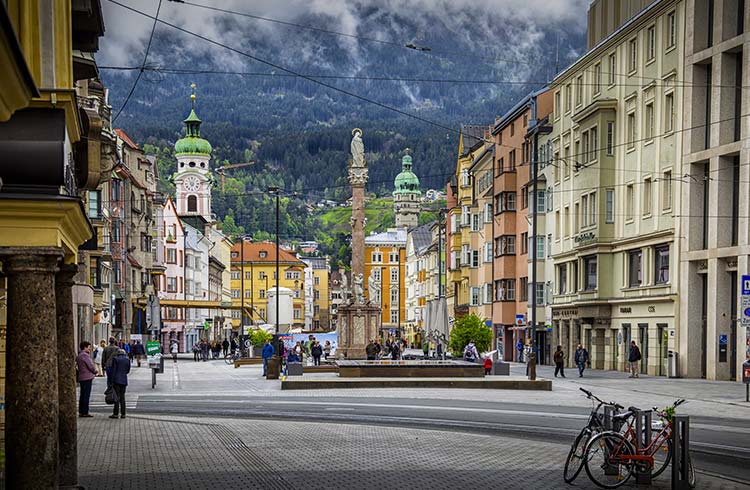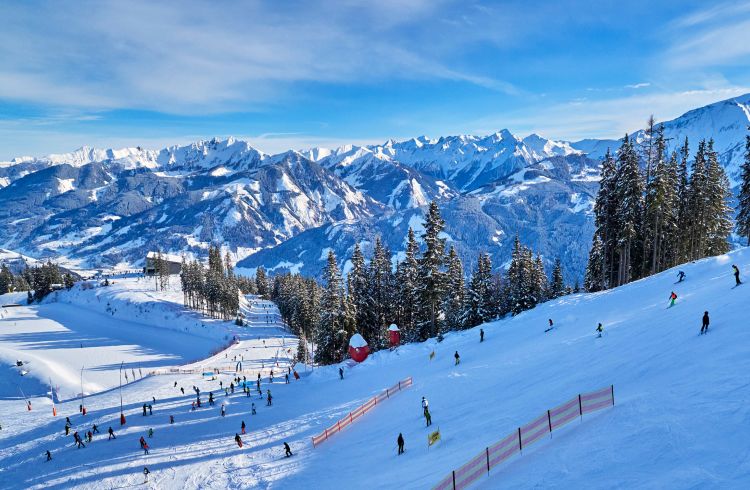Is Austria Safe? 5 Travel Safety Tips to Consider
Austria has one of the lowest crime rates in Europe. But there are still some hotspots where trouble may find travelers. Here are out top travel safety tips.
 Photo © Getty Images/Dado Daniela
Photo © Getty Images/Dado Daniela
Don't be a target
The Australian government added a warning for travelers sleeping on the train from Prague to Vienna. The Smartraveller site says there's been an increase in the number of incidents where pockets and bags have been slashed open - and passports and wallets have been taken.
Any area that attracts a high number of visitors attracts local pickpockets whose quick sleight of hand and distraction techniques could see a traveler robbed of their wallet or passport.
So, before you even leave the hostel/hotel, leave valuables (including your passport) and large amounts of cash in the safe or ask reception how it can be secured. Austria's major cities are modern, highly law-abiding and safe - it would be unlikely a hotel reception would steal the valuables you ask them to keep.
Hot spots for crime in Austria
While the capital Vienna's ring road is dominated by stunning Baroque architecture, lush green lawns, beautifully kept museums and music halls, there are areas where extra precautions should be taken.
The ring road, called Ringstrasse, circles the CBD, known to the Viennese as the"Innere Stadt" (1st District). It is here that many of this historic city's landmarks are found including the Hofburg, the former Habsburg palace that houses the National Library, the Spanish Riding School, and six museums. Most of the traffic in this area is pedestrian and can heave with numbers in the peak tourist months between May and August. Similarly near the famed St Stephens Cathedral and the city's largest train stations.
Other areas that can attract pickpockets and con artists include the busy square Karlsplatz in Wieden (4th District) where tourists flock to see the domed church Karlskirche in the daytime that becomes a haven for drug addicts at night. The Prater is a family oriented amusement park area that can be frequented by opportunistic criminals. Along the popular shopping strip Mariahilferstrasse, in the 6th District, is dicey in the evenings and while the Flohmarkt (flea market) here is dynamic and packed each Saturday, it can attract a seedy element.
Likewise in Salzburg's Getreidegasse, a shopping strip where Mozart's house is located.
In areas like this be wary of "bumping". It's a ploy used by pickpockets to divert attention and get close enough to swipe your wallet. The general advice is if you are bumped or pushed in a crowd, turn around immediately and see who the culprit is. And, in a crowd, always keep a tight hold of your bag, preferably in front of your body, or your wallet if it's in a pocket. Bum bags should be avoided.
And be wary of people claiming to be "plain-clothes police", particularly in the city center area of Innere Stadt. Demand to see their police badge or other identification to verify that they are cops, and don't give them anything (e.g. your passport or wallet) until they prove who they are.
Stay safe in the snow in Austria with these tips.
Beware of helpful strangers
Be careful of con artists as well the standard unseen pickpockets. Some of the ploys include strangers asking for help or "accidentally" staining your clothes to distract you.
If your card gets stuck in an ATM (every traveler's nightmare!) be especially cautious of people who suddenly rush to your aid with offers of help, asking for your PIN to get the card out. Obviously, don't give it to them.
If you find yourself in a situation where you have been robbed, call the police in Vienna on 133. While German is the preferred language, you'll find most Austrians speak impeccable English, as well as about three other European languages.
Accommodation scams in Austria
There are a few simple precautions you can take before booking and paying for accommodation in Austria online:
- Poor spelling and grammar within the content on the website and in emails is a dead giveaway it's not legitimate.
- If there a telephone number on the website or email, call it. The number may be made up, or the call is answered. If so, grill them with questions about the accommodation they are advertising.
- Do not use a method of payment that is not traceable. Make sure that the web address starts with https:// and the padlock appears on your browser.
- Google the accommodation site and see if there are any negative reviews or feedback from other travelers about the site being fraudulent.
- Call the hotel/hostel that the site is advertising and check if they have heard of it, or know their accommodation is being mentioned on it.
- Buyer beware if it's unbelievably cheap and too good to be true, then it probably is.
If you are not sure, visit The Apartment Owners and Rental Association of Vienna official website that lists legitimate accommodation in various parts of Vienna: www.netland.at/wien
Terrorism in Austria
Austria is one of the safest holiday destinations in the world, and fortunately has been spared any major acts of terrorism.
However, the US Government still warns that its open borders (Austria borders with eight European countries - Germany, Czech Republic, Slovakia, Hungary, Slovenia, Italy, Liechtenstein and Switzerland) could leave it vulnerable to terrorist groups entering and leaving anonymously.
US intelligence states that there has been significant radicalization of immigrant Muslim individuals and small groups, and increased use of the internet for propaganda purposes. Travelers should remain vigilant at all times, as there is a heightened risk of terrorism.
Related articles
Simple and flexible travel insurance
You can buy at home or while traveling, and claim online from anywhere in the world. With 150+ adventure activities covered and 24/7 emergency assistance.
Get a quote
No Comments